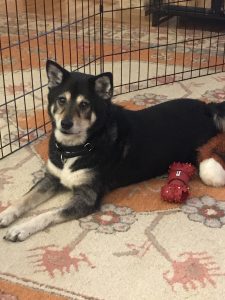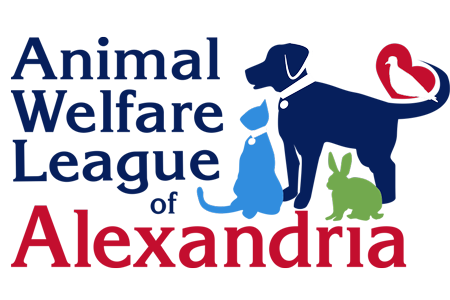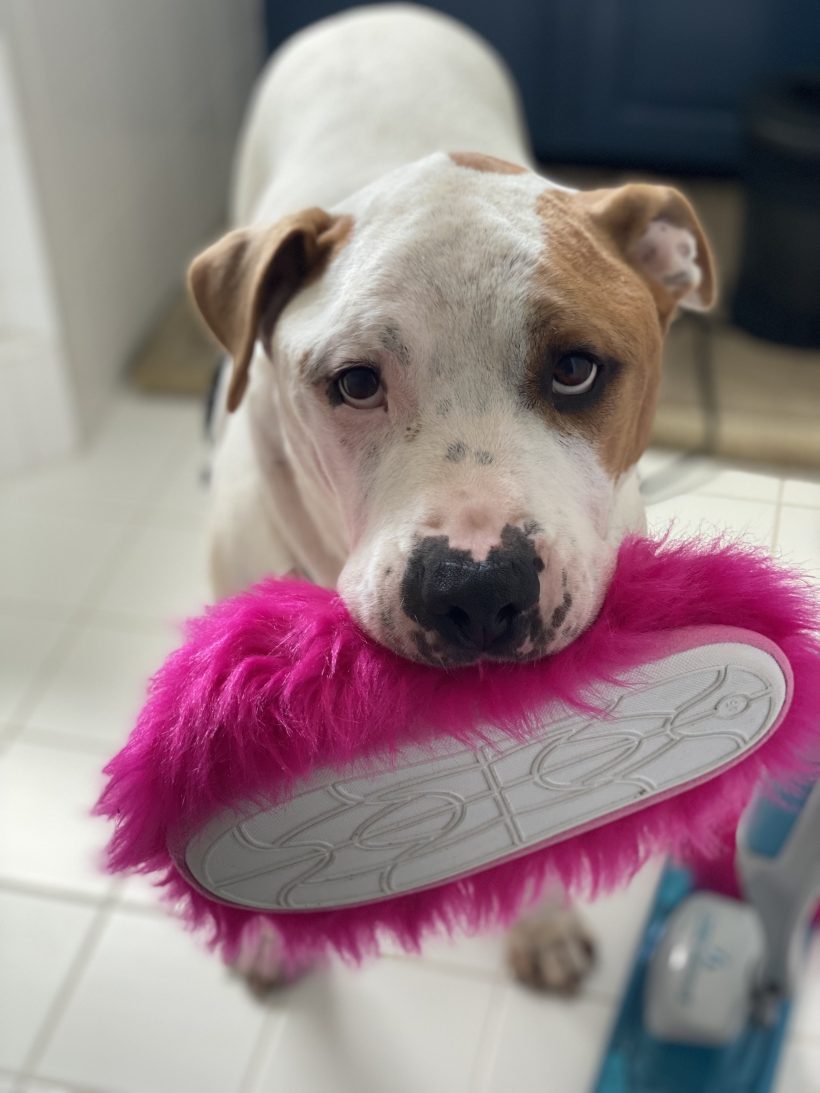 Let’s say you’re a 60-pound dog who is finding the kennel at the Animal Welfare League of Alexandria (AWLA) friendly and nurturing but a bit confining. And let’s say that one day a kind person comes along and takes you to their house for a little vacation.
Let’s say you’re a 60-pound dog who is finding the kennel at the Animal Welfare League of Alexandria (AWLA) friendly and nurturing but a bit confining. And let’s say that one day a kind person comes along and takes you to their house for a little vacation.
That’s what happens regularly to some dogs, cats and other animals at the AWLA when they need a break on their journey to adoption. The shelter’s foster program assists animals who are especially in need of time and care in a home environment, including very young animals, pets with special medical needs, animals who’ve been in the shelter environment for a longer time and could use a change of scenery, and owned pets temporarily held in the AWLA’s Crisis Care program.
Prospective fosters start the process by signing up, then undergoing an orientation and evaluation of their specific interests and needs, followed by training and guidance from the AWLA staff. The AWLA provides all food and other supplies for the foster animals as well as a 24-hour hotline for fosters to call in emergencies.
Foster “mom” Sarah P. and her daughter, Destinye, now 17, began volunteering for the program three years ago. Despite Sarah’s petite size they “somehow always got the bigger dogs, 60- to 70-pounders,” she says. There was Ash, a Lab mix who, despite having behavioral issues in the past, behaved perfectly; Chocolate, a Lab mix who got so excited that he leapt toward other dogs until Sarah trained him to calm down with treats; Priscilla the anxious terrier mix who liked to nibble on blankets; Ben, a pit bull mix who chewed his leashes until the shelter provided a metal one for him, and many others. All were ultimately adopted. Most recently Sarah and her daughter have hosted Frankie, an American bulldog who had lost a significant amount of weight in the shelter but responded well to home-cooked meals, especially Sarah’s specially made instant-pot porridge.
“The larger, more active dogs need more space and more mental stimulation that they can better receive in a home environment,” said AWLA Senior Manager of Veterinary and Foster Care Arianne Killen. “After a while at the AWLA, they can get a bit frustrated, and it’s hard for us to get an idea of their true personalities.”
Fostering helps gather that information, especially by placing animals in situations not available at the shelter. Spending time in a home that has a staircase, for example, can help AWLA staff answer a potential adopter’s question: “Can he climb stairs?”
“If an animal has a track record in a home, it’s much easier for them to get adopted,” said AWLA Veterinary and Foster Care Coordinator Elena Carver. “If we can relay to potential adopters that an animal has turned out to be super-sweet, playful and did great with other animals in the home, they might take a chance they hadn’t considered before.”
 So far this year about 160 individuals and families have fostered animals for the AWLA. The need for foster volunteers has grown in recent months due to the harsh economic effects of the pandemic, leaving some people without stable housing and in need of temporary help with their pets.
So far this year about 160 individuals and families have fostered animals for the AWLA. The need for foster volunteers has grown in recent months due to the harsh economic effects of the pandemic, leaving some people without stable housing and in need of temporary help with their pets.
Animals who are recovering from surgery or struggling with other medical challenges find the quiet and individual attention of foster homes critical to recovery. One of foster Inbal Katz’s favorite “patients” was a grayish pit bull — “with a face like a hippo” — called Baybee who was recovering from surgery after swallowing a foreign object. “She needed a lot of TLC,” Katz recalled. “She was lying down a lot at first, but then started playing.” Baybee began to shine in Katz’s care, and, upon returning to the AWLA, Baybee was soon adopted.
A black and white senior dog named Milk needed watching over after surgeries to remove masses in her mammary glands. “I tried to put bandages on her, but she wouldn’t have it,” Katz said. “So I got her a ‘onesie’ for dogs that covered the wound so she couldn’t scratch it.” Milk healed really well and soon found her family.
Foster homes open their doors to all kinds of animals. Foster Kerin Ord and her husband, Martin Parr, recently housed a mother chinchilla and her baby in a special area of their basement in Alexandria. They also patiently waited out a cat named Spot who was recovering from a traumatic injury and hid under a bed for more than a week, which is not uncommon with shy or unsocialized cats. The woman who adopted Spot lay on the floor next to the bed to view her.
A Shiba Inu dog who was scratching constantly from a severe case of mange would pose a challenge for any foster, but Ord and Parr were willing to take her on. With guidance from the AWLA’s veterinary team, they gave her a series of medicated baths and were able to help her look and feel healthier, eventually helping to find an enthusiastic adopter for her.


(This Shiba Inu thrived in a foster home thanks to the care of dedicated foster “parents” Kerin Ord and Martin Parr.)
Ord, whose household includes two cats and two dogs, says she and Parr are accustomed to animals with special needs. More than once they, like some other AWLA foster caregivers, have come to the conclusion that the best home for some foster animals in their care is with them. In fact, both of the couple’s current canines, Josie and Stubby, started with them as fosters and went on to become full-time residents, now assisting with the parade of foster animals seeking a helping paw.


